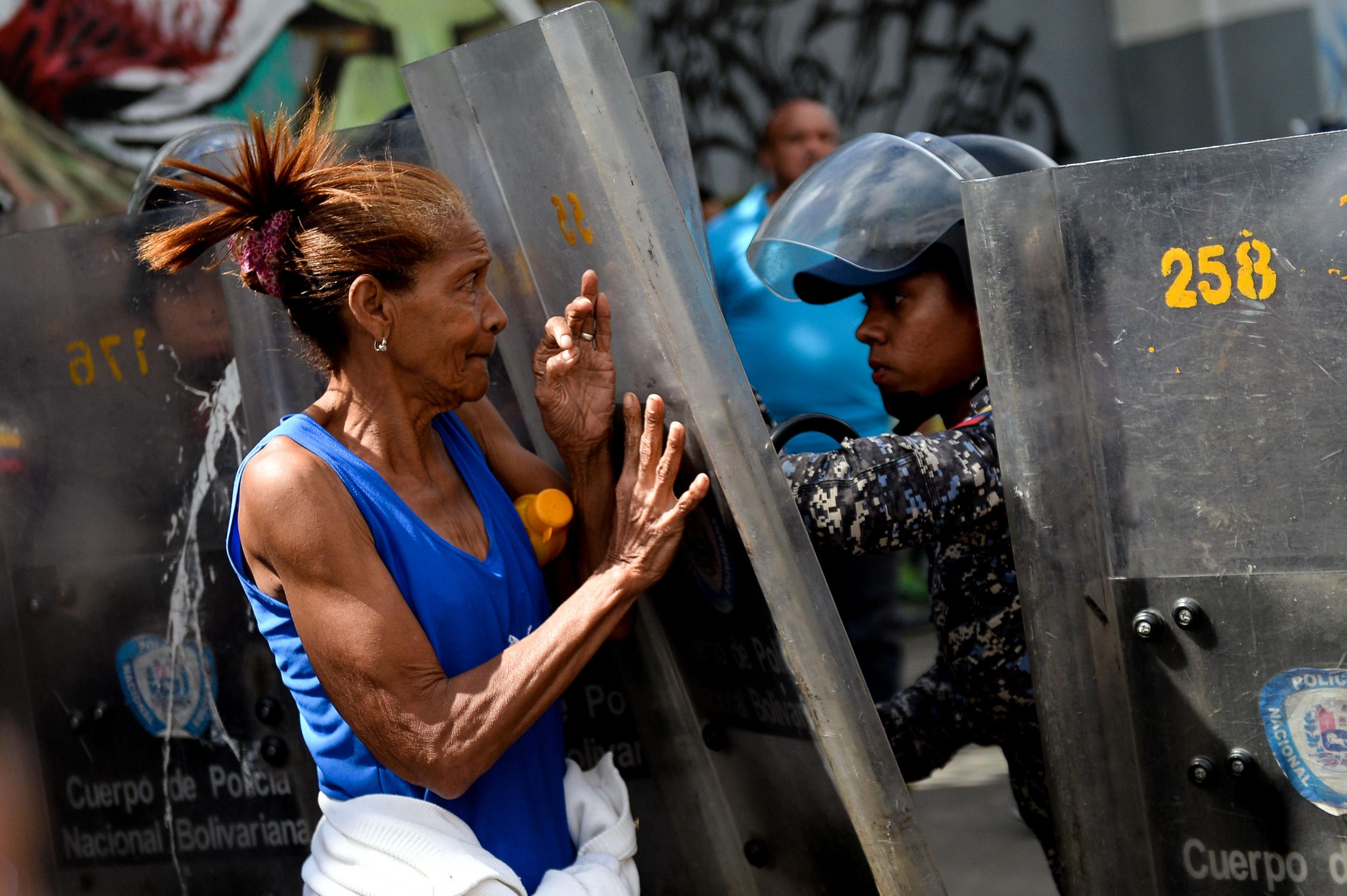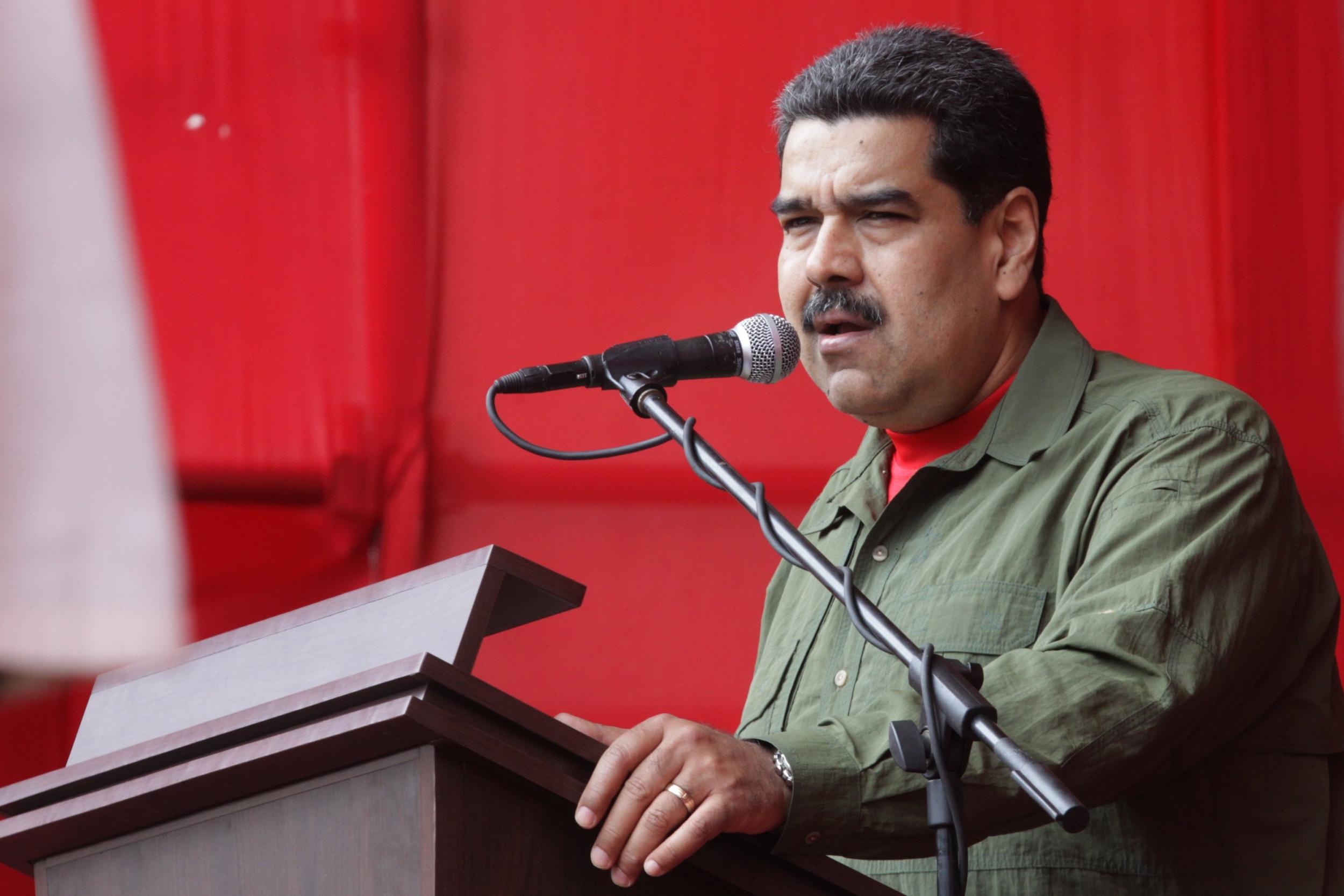Venezuela raises minimum wage by 40% as economic crisis deepens
Economists warn move will accelerate inflation in country where price rises have plunged millions into poverty

Your support helps us to tell the story
From reproductive rights to climate change to Big Tech, The Independent is on the ground when the story is developing. Whether it's investigating the financials of Elon Musk's pro-Trump PAC or producing our latest documentary, 'The A Word', which shines a light on the American women fighting for reproductive rights, we know how important it is to parse out the facts from the messaging.
At such a critical moment in US history, we need reporters on the ground. Your donation allows us to keep sending journalists to speak to both sides of the story.
The Independent is trusted by Americans across the entire political spectrum. And unlike many other quality news outlets, we choose not to lock Americans out of our reporting and analysis with paywalls. We believe quality journalism should be available to everyone, paid for by those who can afford it.
Your support makes all the difference.Venezuela is to raise its minimum wage by 40 per cent, a move which could worsen high levels of inflation in the crisis-stricken nation.
President Nicolas Maduro said the new pay level would protect workers against what he called Washington’s “economic war” on socialism.
But most economists say his socialist government is in fact stoking a vicious cycle in a country already wrestling with the world’s fastest inflation.
The new minimum wage will come into force in January, President Maduro announced during a televised end-of-year speech, and follows six previous pay hikes in 2017.
The move is intended to counter quickening inflation coupled with a depreciating bolivar, a situation that has plunged millions of people into poverty in the once-thriving oil-rich nation.
Venezuelans will now earn at least 797,510 bolivars a month, factoring in food tickets – or just over $7 (£5.10) on the widely used black market index. Millions will still be unable to afford three meals a day or basic medicine, while the increase is likely to stoke inflation further.
Prices went up 1,369 per cent between January and November last year, according to figures released by the opposition-led Congress, which estimated the 2017 rate would top 2,000 per cent.
Economists generally say a country is in hyperinflation when the monthly rate tops 50 per cent for three months, or annual rates remain above three digits for three years.
Venezuela’s central bank reported inflation of 180 per cent and 240 per cent in 2015 and 2016, which had been the highest on record. It has since stopped publishing inflation data.

Opposition politicians say President Maduro’s refusal to overhaul Venezuela‘s state-led economic model and stop excessive printing of money will create more misery in 2018.
The President, however, spent much of his half-hour address blaming others for the country’s woes.
He said foreign and local media were spreading “negative propaganda” while Venezuela was facing “attacks” on its currency, and there were attempts to “sabotage” its oil industry.
Hundreds of Venezuelans took to the streets in parts of the capital Caracas last week to protest a shortage of pork for traditional Christmas meals.
President Maduro’s government had promised to provide subsidised meat to Venezuelans at the end of a fourth year of recession, but in many parts it did not materialise and frustrations boiled over.
Join our commenting forum
Join thought-provoking conversations, follow other Independent readers and see their replies
Comments